Training for BH endocrinologists: regarding the medical aspects of gender reassignment
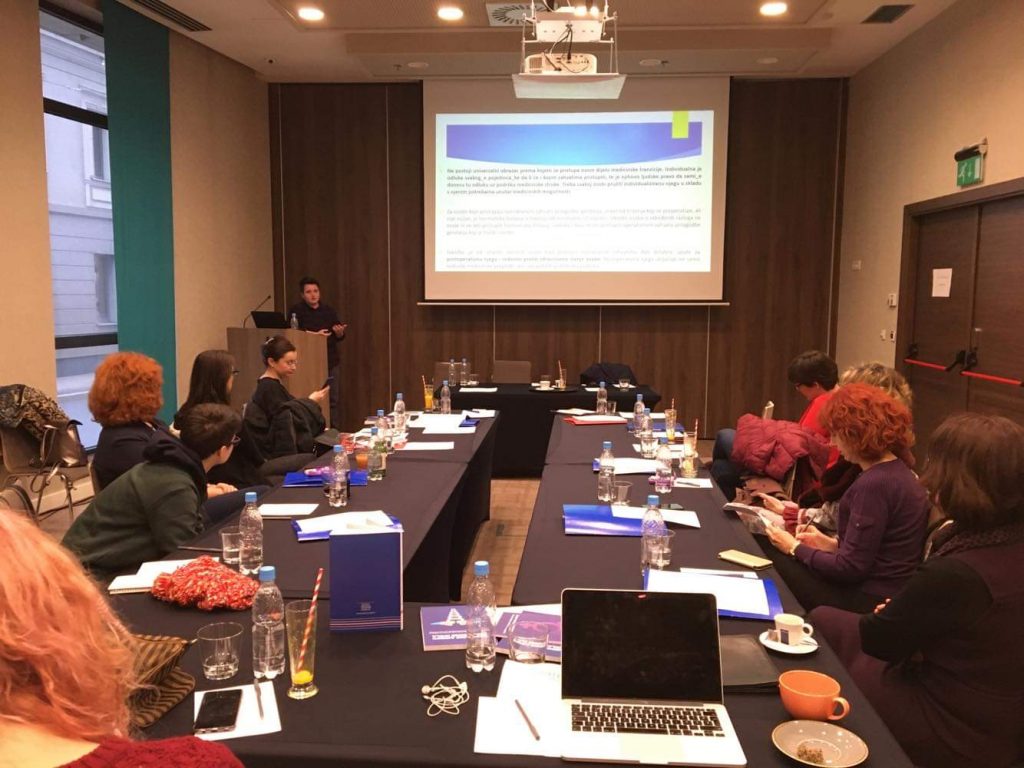 Author: Aida K. at lgbti.ba
Author: Aida K. at lgbti.ba
Gender nonconforming/variant, transgender, and transsexual persons in BH are faced with an everyday battle for the right to exist, because their gender identity differs from the sex assigned to them at birth. Conservative BH society, inadequate legal protection, insufficiently professional and educated health workers add to the discrimination, stigmatization, and oppression of trans* persons. With the aim of improving this situation, Sarajevo Open Centre endeavours to provide opportunities for learning about the lives, problems, and needs of trans* persons through workshops and trainings aimed at health workers from a variety of medical disciplines.
One of these trainings, titled “Medical aspects of gender reassignment: Regarding adequate, trans-specific and inclusive services and support for trans persons in the process of transition,” was held mid-January. As stated by Delila Hasanbegović from SOC, the training was aimed at doctors, endocrine specialists from public health institutions – clinical centres, hospitals and professional associations, from Sarajevo, Tuzla, Goražde, Banjaluka and Mostar. “We wanted to present to the participants endocrinology and paediatric endocrinology perspectives of medical gender reassignment, the needs and experiences, along with guidelines for protecting the wellbeing of gender nonconforming/variant, transgender and transsexual persons, as well as the experiences of trans persons from BH. We expect that the doctors will gain basic understanding and expertise for working with trans persons and apply them in their everyday clinical and professional, but also scientific work,” Hasanbegović said.
Instructors at the training were M.D. Katja Dumić Kubat, spec. of paediatrics in the Paediatric Clinic at the Institute for Children’s Endocrinology and Diabetes (KBC Zagreb), and Asmira Topal from the Association for the Promotion and Protection of Rights for Trans, Inter, and Gender Nonconforming Persons, Trans Aid. The choice of instructors, as stated by Hasanbegović, was based primarily on their long-time experience working with transgender persons in Croatia. There is certainly demand for additional education on this topic. These types of, and similar, trainings are often the only source of information and learning about ways to advance one’s own work, services, and support for trans persons who are undergoing transition. Hasanbegović states that they are satisfied with the response and the accomplished results. “It was very useful that some of the doctors had already encountered trans persons, so we were able to hear their experiences, and the training helped them in further work with patients.”
Sarajevo Open Centre, through this and similar trainings, aims to compensate for the lack of formal education accessible in BH, but also provide a safe space for the meeting of specialists in the field of medicine and those who need their help. “So far, we have offered education for psychologists within the domestic medical system, gynaecologists and urologists, as well as students of medicine and psychology, and afterward, we are planning education for specialists of plastic, reconstructive, and aesthetic surgery and doctors of family medicine, in hopes of intensifying further efforts to enable adequate services of medical gender confirmation and raise awareness of trans identities, problems, needs, and the rights of trans persons within the medical system in BH,” Hasanbegović said.
Learning from one another, the participants of these trainings learn about one another. According to Hasanbegović, therein lies their immense importance. “They are important because they connect service providers with those for whom those services are necessary. They learn about one another through personal interactions. Doctors listen to first-hand accounts of the needs and life journeys of trans persons, and trans persons can ask and seek advice from doctors and secure positively attuned medical experts for future phases of their transition.”
Finally, she points out the encouraging fact that the doctors and participants also wanted to understand the legal issues of gender transition and that reactions to the training were very positive. “They thanked us for providing this education and hoped for further encounters with colleagues from different branches of medicine.”
endocrine expertsendocrinologistsmedical aspects of gender reassignmenttrainingtranstransgendertransition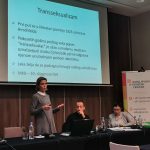 BH urologists and gynaecologists at the training on human rights and needs of trans persons in Bosnia and Herzegovina
BH urologists and gynaecologists at the training on human rights and needs of trans persons in Bosnia and Herzegovina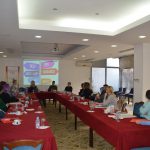 Psychology and medicine students went through the training on rights and needs of trans persons, and medical aspects of gender reassignment
Psychology and medicine students went through the training on rights and needs of trans persons, and medical aspects of gender reassignment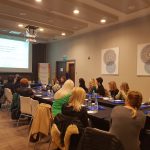 There is need to additionally educate psychologists and psychiatrists on human rights and needs of trans persons in Bosnia and Herzegovina
There is need to additionally educate psychologists and psychiatrists on human rights and needs of trans persons in Bosnia and Herzegovina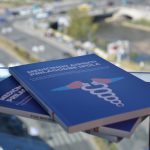 The manual for medical and healthcare professionals on providing services and support to trans persons in the transition process presented in Sarajevo
The manual for medical and healthcare professionals on providing services and support to trans persons in the transition process presented in Sarajevo